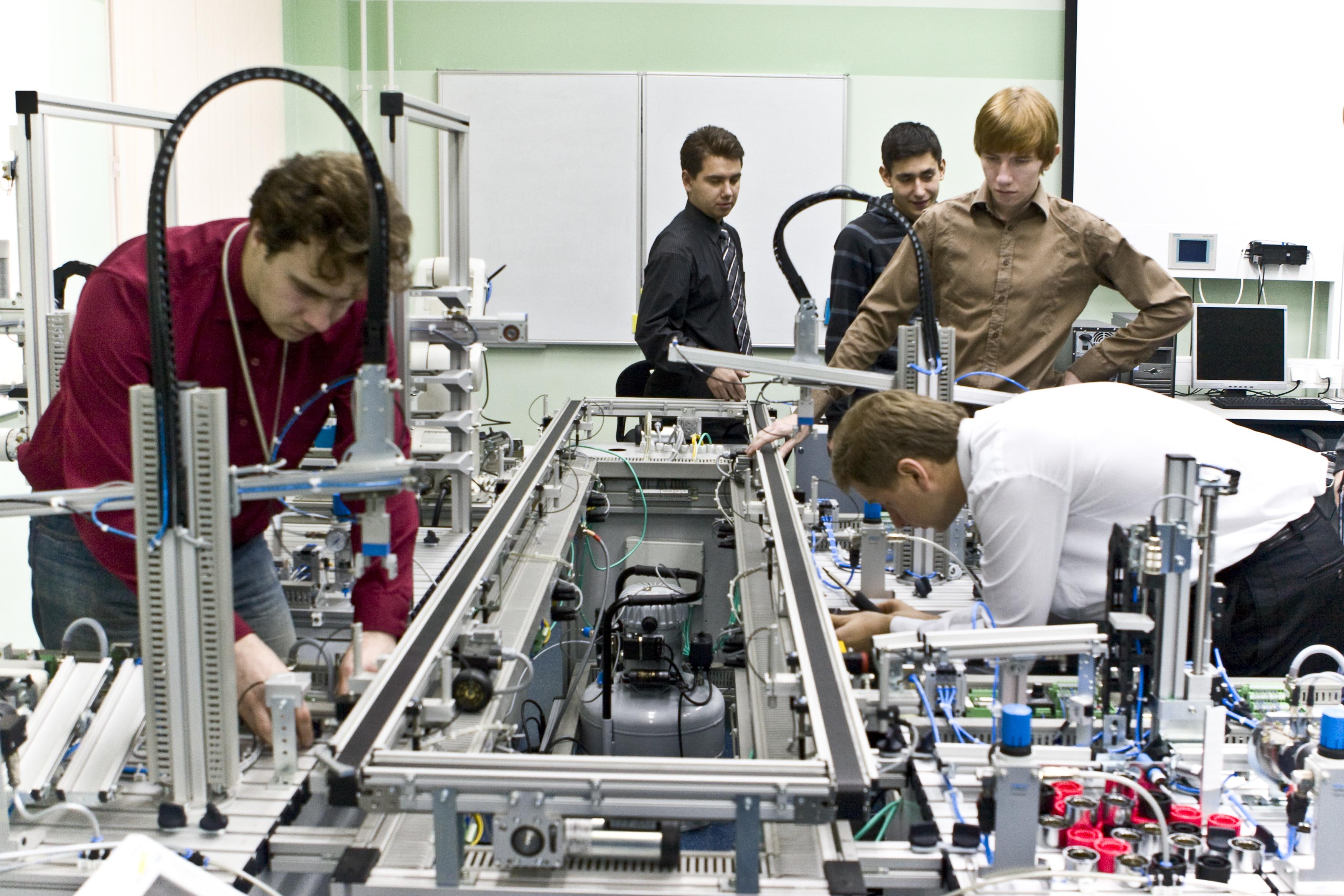|
Dar Al-Zahra
Dar al-Zahra was the first women's Shia seminary to be opened in Qom. It was established by grand ayatollah Mohammad Kazem Shariatmadari, who opened it in 1973 as a section of his hawza Dar al-Tabligh. By 1975, Dar al-Zahra already counted 150 female students, taught by male teachers from behind a curtain. With the fall-out between Mohammad Kazem Shariatmadari and Khomeini, the seminary was closed and Shariatmadari was placed under house arrest. Dar al-Zahra was run by Fatemeh Amini. After Dar al-Tabligh The Dar al-Tabligh was a Shiite seminary in Qom. It was established in the mid-1960s by eminent grand ayatollah Mohammad Kazem Shariatmadari and soon emerged as one of the most popular hawza for Iranian and foreign students, with a prolific publish ... was closed, she opened a number of other women's seminaries in Tehran.Azadeh Kian-Thiébaut, “Women’s Religious Seminaries in Iran”, ISIM Newsletter, No. 6, October 2000, p. 23. References Education in Iran Educatio ... [...More Info...] [...Related Items...] OR: [Wikipedia] [Google] [Baidu] |
Mohammad Kazem Shariatmadari
Sayyid Mohammad Kazem Shariatmadari (), also spelled Shariat-Madari (5 January 1906 – 3 April 1986), was an Iranian Grand Ayatollah. He favoured the traditional Shiite practice of keeping clerics away from governmental positions and was a critic of Supreme Leader Ruhollah Khomeini, denouncing the taking hostage of diplomats at the US embassy in Tehran. Biography Early life and education Born in Tabriz in 1906 in an Azerbaijani family, Shariatmadari was among the most senior leading Twelver Shia clerics in Iran and Iraq and was known for his forward looking and liberal views. After the death of Supreme and Grand Ayatollah Borujerdi (Marja' Mutlaq) in 1961 he became one of the leading marjas, with followers in Iran, Pakistan, India, Lebanon, Kuwait and the southern Persian Gulf states. In 1963, he prevented the Shah from executing Ayatollah Khomeini by recognizing him as a Grand Ayatollah, since according to the Iranian constitution a Marja' could not be executed. Khomeini w ... [...More Info...] [...Related Items...] OR: [Wikipedia] [Google] [Baidu] |
Dar Al-Tabligh
The Dar al-Tabligh was a Shiite seminary in Qom. It was established in the mid-1960s by eminent grand ayatollah Mohammad Kazem Shariatmadari and soon emerged as one of the most popular hawza for Iranian and foreign students, with a prolific publishing outlet.Michael M. J. Fischer, ''Iran: From Religious Dispute to Revolution'', Wisconsin: University of Wisconsin Press, 2003, p.84ff. In 1973, Dar al-Tabligh opened a women's section, called Dar al-Zahra, which by 1975 counted 150 female students, taught by male teachers from behind a curtain. With the fall-out between Mohammad Kazem Shariatmadari Sayyid Mohammad Kazem Shariatmadari (), also spelled Shariat-Madari (5 January 1906 – 3 April 1986), was an Iranian Grand Ayatollah. He favoured the traditional Shiite practice of keeping clerics away from governmental positions and was a crit ... and Khomeini, the seminary was closed and Shariatmadari was placed under house arrest. References {{reflist Education in Iran ... [...More Info...] [...Related Items...] OR: [Wikipedia] [Google] [Baidu] |
Fatemeh Amini
Fatemeh Amini is a female religious leader of Iran, who has directed and opened a number of women's seminaries in Qom and Tehran. She was the director of the first women's hawza in Qom, the Dar al-Zahra, which was the women's wing of grand ayatollah Mohammad Kazem Shariatmadari's hawza Dar al-Tabligh. According to an interview with Azadeh Kian-Thiébaut, Amini also opened the women's madrasas Maktab-e Ali in Qom and Maktab-e Zahra in Yazd before the revolution. Later, she founded the Tehran Seminary Fatemeh Zahra in 1988. Regarding the latter, Amini states that “Our goal is to contribute to women's development by giving impetus to their creativity, thereby also increasing their self-esteem.” The seminary provides religious training for women, and based on a micro-credit system, which grants interest-free loans to poor families and female university students, it financially and morally assists deprived women in order to boost their activities in the public sphere. Amini points ... [...More Info...] [...Related Items...] OR: [Wikipedia] [Google] [Baidu] |
Education In Iran
Education is the transmission of knowledge and skills and the development of character traits. Formal education occurs within a structured institutional framework, such as public schools, following a curriculum. Non-formal education also follows a structured approach but occurs outside the formal schooling system, while informal education involves unstructured learning through daily experiences. Formal and non-formal education are categorized into levels, including early childhood education, primary education, secondary education, and tertiary education. Other classifications focus on teaching methods, such as teacher-centered and student-centered education, and on subjects, such as science education, language education, and physical education. Additionally, the term "education" can denote the mental states and qualities of educated individuals and the academic field studying educational phenomena. The precise definition of education is disputed, and there are disa ... [...More Info...] [...Related Items...] OR: [Wikipedia] [Google] [Baidu] |
Education In Qom Province
Education is the transmission of knowledge and skills and the development of character traits. Formal education occurs within a structured institutional framework, such as public schools, following a curriculum. Non-formal education also follows a structured approach but occurs outside the formal schooling system, while informal education involves unstructured learning through daily experiences. Formal and non-formal education are categorized into levels, including early childhood education, primary education, secondary education, and tertiary education. Other classifications focus on teaching methods, such as teacher-centered and student-centered education, and on subjects, such as science education, language education, and physical education. Additionally, the term "education" can denote the mental states and qualities of educated individuals and the academic field studying educational phenomena. The precise definition of education is disputed, and there are disagreements ... [...More Info...] [...Related Items...] OR: [Wikipedia] [Google] [Baidu] |

